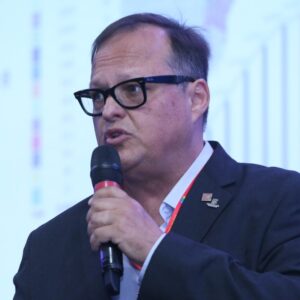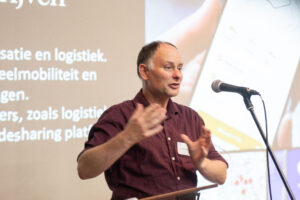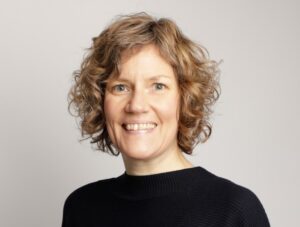
- This event has passed.
HSS #9 – Hamburg Sustainability Sessions on sustainable urban mobility

In today’s rapidly evolving urban landscape, the way we move within cities is transforming at an unprecedented pace. The concept of Sustainable Urban Mobility has emerged as a critical solution to address challenges such as congestion, pollution, and the growing demand for efficient and convenient transportation options.
Join us at the Hamburg Sustainability Sessions #9, where we will explore the innovative strategies, technologies, and policies shaping the future of urban mobility. Discover how cities are adapting to these changes by implementing sustainable transportation systems that prioritize not just efficiency and convenience, but also environmental and social responsibility.
Discover the potential of sustainable urban mobility and gain insights into the latest advancements that are driving this transformation, from electric and autonomous vehicles to shared mobility solutions and smart city planning. This international event, conducted in English, offers a unique platform for global collaboration and knowledge exchange, bringing together leading experts and
innovators in the field.
We aim to inspire you with ground breaking ideas and practical knowledge that can help create smarter, more accessible, and more sustainable transportation systems in your communities. Whether you are a policymaker, urban planner, researcher, or business leader, this session provides an invaluable opportunity to engage with thought leaders and practitioners who are at the forefront of redefining urban mobility for a sustainable future.
The ESSSR is therefore joining forces with the Shared & Digital Mobility Hubs project, funded by the Interreg NorthSea programme and co–funded by European Commission, to organize a Hamburg Sustainability Session on sustainable urban mobility. Together, we will explore why sustainability in urban mobility is important, how it can benefit your research, and practical steps to achieve it.
The presenters:
 Dr. Gustav Bösehan is an independent post–doctoral researcher with a background in Transportation and Social Science. His research interests include urban, shared, and electric mobility, as well as sustainable urban design and logistics. After receiving his PhD, Gustav worked on the successful eHUBS project, which pilot–tested electric shared mobility hubs in several European countries. Gustav is currently working on the “XLP80MBedded” project at the SRH University of Applied Sciences Heidelberg, testing the application of hydrogen fuel cells in Intralogistics operations.
Dr. Gustav Bösehan is an independent post–doctoral researcher with a background in Transportation and Social Science. His research interests include urban, shared, and electric mobility, as well as sustainable urban design and logistics. After receiving his PhD, Gustav worked on the successful eHUBS project, which pilot–tested electric shared mobility hubs in several European countries. Gustav is currently working on the “XLP80MBedded” project at the SRH University of Applied Sciences Heidelberg, testing the application of hydrogen fuel cells in Intralogistics operations.

Dr. Erwin Werner Teichmann has been a professor and researcher at the Federal Institute of Education, Science and Technology of Santa Catarina (IFSC) at Florianópolis Campus since 2009. He holds a Mechanical Engineering degree from UFSC, a master’s degree in mechanical engineering and a PhD from the same institution. He worked for almost ten years at Tier 1 automotive component supplier in Brazil and France (Renault and ThyssenKrupp). From 2019 to 2020, he worked as a guest researcher at ILT Fraunhofer in Aachen, Germany for his Post–Doc project on Laser Metal Deposition. He currently coordinates the following research projects: Embrapii/IFSC/SEBRAE/MVP: “ePTO – Electric Power Take–Off”, IFSC/POWERMIG: “POWERWAAM – Additive Manufacturing by Electric Arc Welding”, IFSC/UFSC/FINEP: “Development of an electrification system for on–board hydraulic devices in utility vehicles”. He coordinated the IV Mobisul International Mobility Congress and the Electric Mobility Panels at SUMMIT CITIES 2023. He is passionate about sustainability and electric mobility.
 Eric van Dijk’s expertise lies in traffic and transport–related urban planning, emphasizing cooperation, policy evaluation, issue identification, and analysis. He has experience in both public and private sectors. Currently, as part of the smart mobility program, Eric is involved with the “Digitization of mobility data” initiative, improving the region’s mobility system by developing and applying new methods and techniques. This involves collaboration with municipalities and non–governmental parties on themes
Eric van Dijk’s expertise lies in traffic and transport–related urban planning, emphasizing cooperation, policy evaluation, issue identification, and analysis. He has experience in both public and private sectors. Currently, as part of the smart mobility program, Eric is involved with the “Digitization of mobility data” initiative, improving the region’s mobility system by developing and applying new methods and techniques. This involves collaboration with municipalities and non–governmental parties on themes
like smart traffic information, data sharing, and efficient work processes. Eric is also a contributor to
Interreg North Sea’s Shared and Digital Mobility Hubs (ShareDiMobiHub), where the province of Utrecht is the lead partner. Additionally, he initiated the “snifferbike” citizen science project monitoring cycling and air quality.
 Dr. Anke Ruckes is a Product manager mobility Hubs (hvv switch) at Hamburger Hochbahn AG. Strong innovation–oriented expert with a Diploma in Urban Planning and a PhD in Urban Geography. Experienced in mobility planning and urban development with a focus on strategy and conceptual design.
Dr. Anke Ruckes is a Product manager mobility Hubs (hvv switch) at Hamburger Hochbahn AG. Strong innovation–oriented expert with a Diploma in Urban Planning and a PhD in Urban Geography. Experienced in mobility planning and urban development with a focus on strategy and conceptual design.
